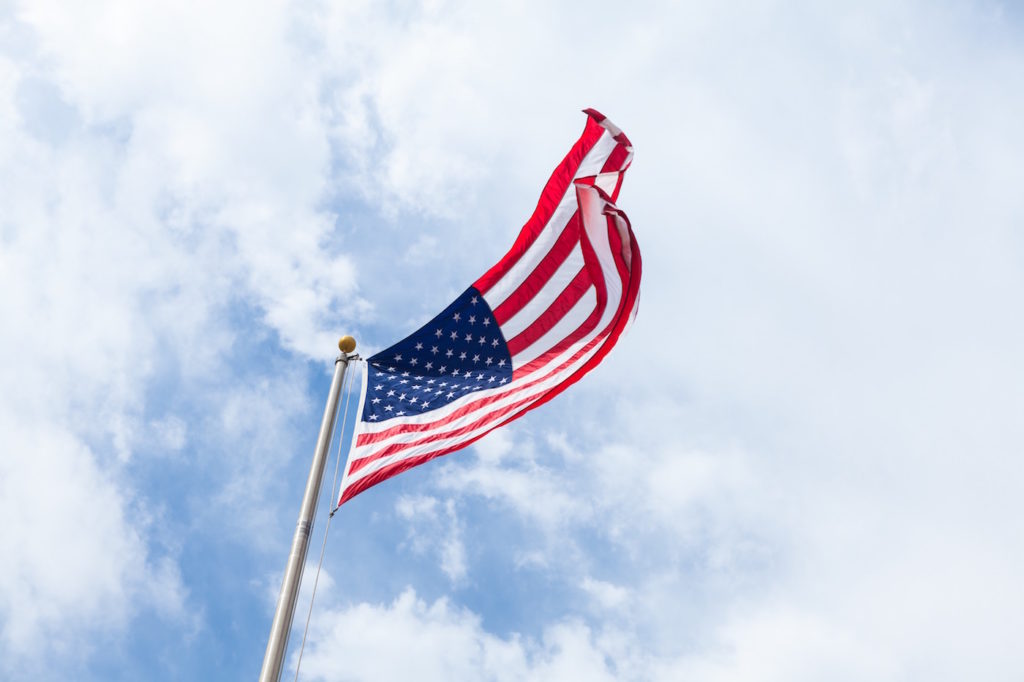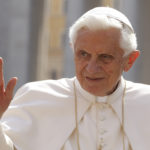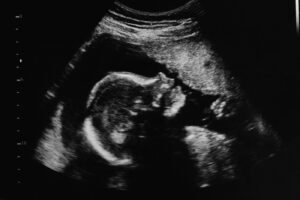This essay is part of our collection on nationalism. See the full collection here.
In a stimulating recent First Things essay, Yoram Hazony urges us to reject the dogmas of liberal democracy in favor of the time-tested wisdom of Anglo-American constitutionalism. While his critique of the corrosive abstractions of modern rationalism and his articulation of the virtues of “conservative democracy” are insightful, Hazony misses the central role of right reason, and the universal principles it discerns, in the very tradition he is promoting. Correcting this oversight gives us a more precise understanding of contemporary liberalism’s flaws and provides a more robust basis for the prudently liberal republicanism whose restoration we ought to seek.
Reason vs. Tradition?
Hazony argues that liberalism, rooted in the rationalism of “Hobbes, Locke, Spinoza, Rousseau, and Kant,” has gradually captured the allegiance of American and European elites, achieving near-exclusive dominion over public discourse in the wake of the horrors of World War II. Espousing a rigid “system of dogmas” about human nature, reason, and morality, liberalism fosters the delusion that one set of principles must apply in the same manner to “all nations, everywhere on earth, and at all times in history.” Having taken the Anglo-American tradition’s notions of limited government and individual liberty out of their historical, national, and religious contexts, liberalism advances an order based exclusively on the radical freedom and equality of individuals. It reduces society to a network of arbitrary, and perpetually renegotiable, contractual agreements.
Start your day with Public Discourse
Sign up and get our daily essays sent straight to your inbox.Hazony describes liberal ideology as intransigently “untouched by experience,” and he urges us to consider the devastating effects of its denigration of institutions such as “the Bible, public religion, the independent national state, and the traditional family.” These institutions, hitherto the source of society’s “internal coherence and stability,” are “disintegrating before our eyes,” even as our elites erect “an ideologically anti-religious, anti-traditional power” on an international scale. Hazony wisely doubts that liberal democracy can long survive without the “conservative principles” that liberal ideologues openly despise and even persecute.
Hazony’s sketch of the conservative alternative to liberalism begins with the Hebrew Bible. He relates how it depicts the weakness of human reason, declares the “familial, national, and religious” provenance of all obligations, and proclaims humans’ dignity while saying “nothing” about their radical freedom and equality. The Anglo-American version of this conservative tradition is traceable to the Middle Ages; it has been shaped by thinkers ranging from John Fortescue and Richard Hooker to Edmund Burke and Alexander Hamilton.
Grounded in a “historical empiricism” that is skeptical of “the universal rights of man” (and other abstract notions), this tradition embraces “a free and just nation-state [that charts] its own course without foreign interference.” It promotes “religious practices common to the nation,” tolerating other faiths and customs so long as they “do not endanger the integrity and well-being of the nation as a whole.” And it seeks to protect the quest for truth and justice from tyrannical suppression: it fosters the rule of law, representative government, and the protection of “fundamental rights and liberties”―though it defines these according to traditional wisdom, rather than by standards that purportedly hold across all times and places.
Prudence, Truth, and Tradition
Hazony is at pains to stress that conservative democracy is capable of preserving all the genuine goods associated with liberal democracy. Though there are many conservative traditions in the world, he defends only the one in whose soundness he believes. He rejects “every evil that was tolerated” by Anglo-American societies in the past, such as “the institutionalized abuse of the African-American minority,” and he reminds us that tradition admits of “adjustments over time,” so long as they be “made on the basis of principles internal to the existing order.” Crucially, he insists that conservatism is the only means of securely grounding the freedoms that liberal democracy falsely claims it alone cherishes and provides.
As compelling as Hazony’s argument is on many points, it contains several related difficulties. To begin with, defending conservatism vis-à-vis other systems, or discerning which of its “internal” principles are worthy of preservation or modification, requires an appeal to universal standards, the existence of which he denies. Hazony’s case for conservatism makes heavy use of terms that imply good and evil, justice and injustice, health and harm. In fact, he admits that “the authority of government derives from constitutional traditions known . . . to offer stability, well-being, and freedom.” How can we know that conservatism fosters these goods without knowing what they are? It turns out that a firm grasp of universal principles—supported, to be sure, by experiential knowledge of their practical dynamics—is necessary not only to evaluate, affirm, and adjust tradition, but even to understand it on its own terms.
A more precise critique of modern liberal ideology emerges when we realize that the Anglo-American constitutional tradition that Hazony defends is itself rooted in truths held to be valid in all times and places. From a classical perspective, the trouble with contemporary liberalism is not its confidence in human reason or its predilection for changeless verities, but rather its abandonment of an older and superior account of what truth is and of how it is pursued in human affairs.
As Josef Pieper explains in his masterful book Reality and the Good, the foundation of all ethics (including political, religious, and familial duties) is reality itself. By nature we grasp that being is good and desire it as such. In a world of flux and potentiality, seeking the good means directing all beings—especially human beings—toward the realization of their potential or the perfection of their being. This would be impossible unless we possessed (at least in outline) a firm perception of the nature of things, including the potential we are trying to realize.
Since man is a rational and mortal animal, his perfection is achieved by all that fosters: his physical safety and health; families capable of raising future generations; and the intellectual and moral virtues that are necessary for persons and associations to pursue truth and justice.
Our knowledge of the self-evident principles that define the perfections toward which human nature tends is what the tradition calls natural law. Since man is a rational and mortal animal, his perfection is achieved by all that fosters: his physical safety and health; families capable of raising future generations; and the intellectual and moral virtues that are necessary for persons and associations to pursue truth and justice. Without a clear vision of these goods as goods, human action could have no ultimate purpose and hence no meaning.
Properly understood, the universal truths of natural law pose no threat to the legitimate diversity among particular communities, nor to their autonomy. In fact, the complexity of human affairs is such that human reason is incapable of defining in advance precisely what is required for the perfection of any particular person, much less the perfection of an entire family or nation. While universal principles establish the broad outlines of the good life and demand that we seek it, no person or group can achieve or even approximate this goal without specifying and determining these principles in countless, unique ways.
Since the practices of any society must embody universal principles, not all practices are equally good, and some (such as piracy, slavery, or genocide) are outright evil. The connection between universal and particular goods is governed by reality, though in its fullness it is not reducible to abstract definition. The only human means of forging and sustaining such a connection is prudence, the virtue by which we skillfully combine knowledge of universals with knowledge of particulars in order to plan, execute, and evaluate actions in light of our natural ends.
Though the classical tradition is fully aware of the limits of human reason—its intrinsic fallibility and susceptibility to corruption by the passions—this tradition rightly holds that the primary means of achieving good (or mitigating evil) in this life is to remedy the weaknesses of reason by promoting prudence and the virtues that it makes possible. In relation to this life and the next, the cultivation of prudence in its manifold applications is precisely the goal sought by healthy families, religious groups, and governments. Far from undermining these institutions, right reason defines their missions and makes their necessity manifest.
The Loss and Recovery of Prudence in Modern Liberal Democracies
Hazony is right to fault rationalists for attempting to reduce political thought to a “mathematical system,” and this fault does exacerbate the crises confronting liberal democracies today. Yet this hyper-rationalization of politics is not the result of an excessive confidence in human reason. In truth, modern liberalism is grounded in the Machiavellian teaching that reality is fundamentally disordered, that nothing is good by nature, and that reason is therefore incapable of directing us toward the realization or approximation of an imaginary perfection.
Paradoxically, it is this repudiation of the ultimate veracity of reason that informs the rigid (and brittle) rationalism of modern ideologies. Replacing a supposedly nonexistent objective good with the satisfaction of subjective desires, modern (and post-modern) thinkers see all moral, political, and religious orders as instrumental human constructs. Reason is retained as a tool for shaping and reshaping these orders, not in accordance with nature, but in hopes of better satisfying dominant human desires. This formula reins in various forms of liberalism, whether the desires in question seem to be stable over time (such as the Hobbesian desire for survival or the Lockean desire for property) or to evolve according to an apparently interminable historical process—as with today’s “constant assertion of new human rights,” which are driven by a demand for the absolute and equal affirmation of all ways of life, regardless of objective moral or practical standards.
Though many of his complaints and recommendations are sound from the perspective of classical prudence, it is important to note where Hazony’s misdiagnosis of modern liberal errors leads him astray. The clearest example is his claim that the U.S. Supreme Court’s assertion of an individual constitutional “right to define one’s own concept of existence” is traceable to the Declaration of Independence’s recognition of inalienable human rights to “life, liberty, and the pursuit of happiness.” Hazony misses the world of difference between a liberty grounded in (and bounded by) “the laws of nature and of nature’s God” and the hubris by which human beings seek to play God and remake nature according to their own whims.
If Hazony is excessively suspicious of reason and liberty, he also seems a bit too trusting of the modern nation-state. Leaving aside the most heinous crimes motivated by hyper-nationalism, it is possible to trace a thread running from Henry VIII’s claim to represent God within his realm, to Locke’s teaching that religion is to be tolerated within bounds defined by a rationalist state, to modern liberalism’s quest to make men their own creators.
As Hazony acknowledges, liberty (rightly understood) is a genuine good best promoted by a republicanism that is free from the ideological errors of rationalism. The same can be said about the goods made possible by well-ordered nation-states, versus those in the thrall of ideological delusions. If we are to correct the wayward course of contemporary democratic societies, we must preserve what is true and good and mitigate what is false and harmful in both liberalism and nationalism. Here we will indeed do well to embrace core principles of the Anglo-American constitutional tradition—principles grounded in and sustained by the virtue of prudence.














